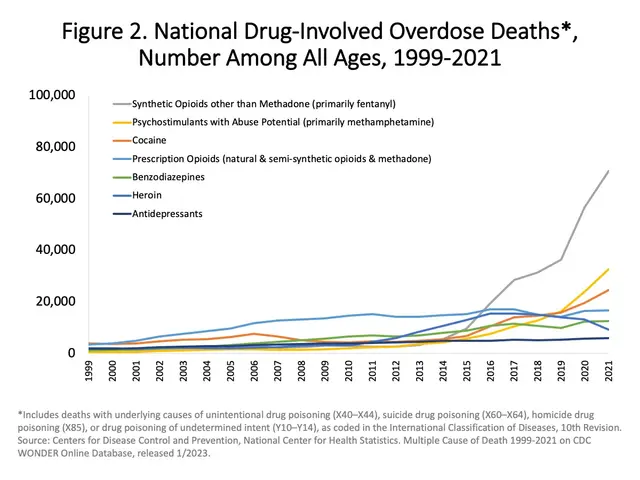Berlin's Standoff with Two German-language Porn Sites: A Legal Tussle in the Age of Digital Content
Administrative Court in Berlin Upholds Block of Two Porn Websites in German Language - Administrative Court in Berlin Maintains Block on Two German-Adult Content Websites
Let's dive into the gritty details of a cat-and-mouse game between the Berlin Administrative Court and two notorious German-language porn sites.
In 2020, the North Rhine-Westphalia Media Authority caught wind of these shady video-sharing platforms, teeming with uncensored pornographic content. The media authority put a halt to their operations, demanding the establishment of a closed user group to restrict access only to adults.
However, emergency applications to the North Rhine-Westphalia Higher Administrative Court in Münster in September 2022 were unsuccessful. The provider didn't budge, failing to stop content distribution or establish a closed user group, despite a penalty fine.
In response, media authorities across the board took action against access providers, i.e., internet access providers. The Berlin-Brandenburg media authority ordered a Berlin access provider to block access to the websites in German territory in April 2024. The provider objected, presenting legal challenges, but to no avail.
The blocks were imposed because the provider refused to play by the rules, as the Administrative Court justified its decision. Despite the ban, pornographic content continues to circulate unrestricted. The disregard for existing child and youth protection laws is particularly appalling. There's still an option to appeal the decision at the Higher Administrative Court of Berlin-Brandenburg.
The legal landscape surrounding this issue is far from straightforward. EU directives, national laws, and content moderation standards all play their part in shaping this complex battlefield. Although the specifics of the Berlin case aren't explicitly stated, let's explore some relevant context:
EU Regulatory Landscape
- Age Assurance Mandates: The SREN law in France, effective June 2024, requires "double-blind" age verification for porn sites, enforced through fines, blocks, or delisting. Similar efforts could sway German courts to enforce stricter compliance with youth protection laws.
- Jurisdictional Reach: French regulators now target porn platforms globally if accessible domestically, a precedent that German authorities might adopt under EU harmonization principles.
German Legal Context
- Youth Media Protection: Germany's Interstate Media Treaty obligates platforms to prevent minors from accessing harmful content, frequently interpreted as requiring age gates for pornographic material.
- Enforcement Mechanisms: Administrative courts could mandate ISP-level blocks (as in France) or fines under §4 of the Youth Protection Act if sites fail age verification.
International Comparisons
- France:
- Arcom’s Authority: Blocks non-compliant sites and enforces biometric verification partnerships (e.g., Dorcel + Yoti).
- Legal Challenges: Aylo (Pornhub's parent) is contesting regulations in court, illuminating tensions between privacy rights and child protection.
- EU-wide:
- GDPR Conflicts: Age verification systems must balance privacy rights against effectiveness.
- CJEU Oversight: The Court of Justice of the EU may soon rule on the proportionality of these measures in similar cases, setting binding precedents.
- United States:
- Section 230: Contrasts with EU approaches by shielding platforms from liability for user content, though state-level age verification laws (e.g., Louisiana) face First Amendment challenges.
This evolving landscape suggests that a Berlin ruling would likely balance youth protection obligations against fundamental rights, potentially mirroring France's assertive enforcement model. Through a fiery legal tug-of-war, we'll soon discover who comes out on top in this digital smackdown.
- Berlin
- Administrative Court
- Access
- Cyprus
- The Berlin Administrative Court's ongoing standoff with German-language porn sites involves a persistent battle to enforce community law regarding the distribution of pornographic content within German territory.
- In 2024, the Berlin-Brandenburg media authority ordered a Berlin access provider to block access to the websites, following the sites' refusal to comply with community law, specifically age gates for pornographic material as required by the Interstate Media Treaty.
- Despite the access provider's objections and legal challenges, the blocks were imposed, highlighting the Berlin Administrative Court's commitment to protect children and youth as mandated by community law.
- In the evolving landscape of digital content regulation, this battle in Berlin has parallels with regulatory efforts in other countries, particularly France, where new age assurance mandates aim to tackle the distribution of uncensored pornographic content on the internet.








